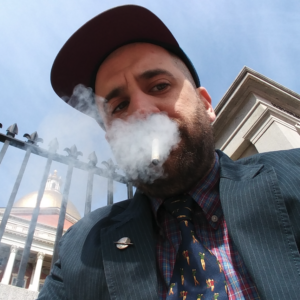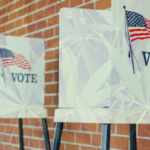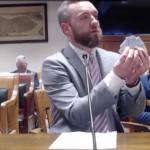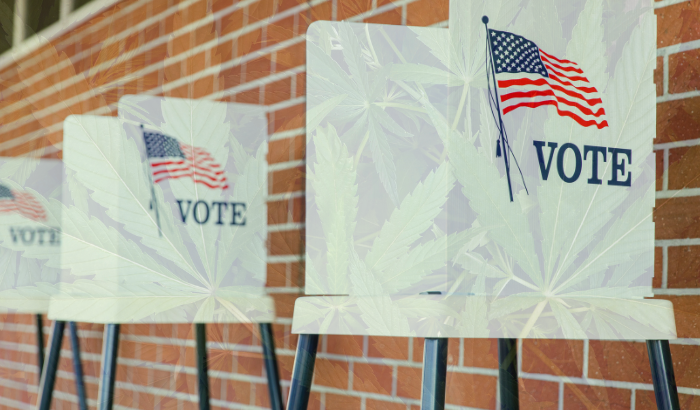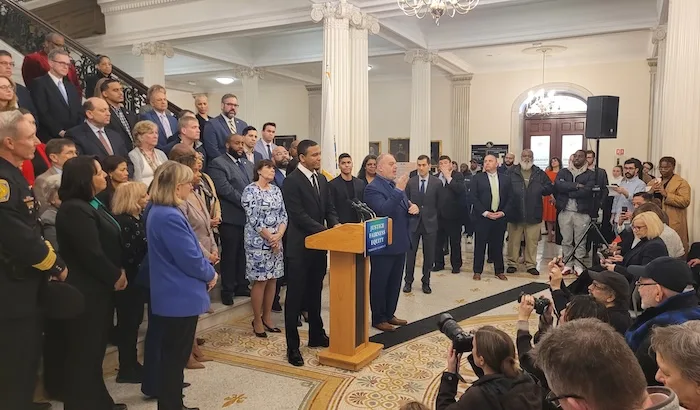
“Massachusetts will be the first state to take action since President Biden pardoned federal marijuana convictions and called on governors to follow suit.”
In the spirit of alternative outlets that extolled weed back when getting caught with a joint could get you thrown in the joint, we typically stick to issues that get ignored, as well as topics that are being covered shittily by papers of record and five o’clock news crews.
This is not exactly one of those scenarios. On a surface level, the Boston Globe and others are totally capable of telling folks about Gov. Maura Healey’s pardon of “all misdemeanor convictions for marijuana possession on record in our state.” It seemed like every journalist still left in Mass was at the State House for the huge announcement Wednesday, and I’m sure they all did a good enough job of showing how bad the establishment now feels about ruining lives over unfounded fears that sane and honest people protested for years.
That lifetime of nonsense considered, I suppose this is one of those situations where it is important to chime in, because even in the immediate wake of Healey’s proposed pardons, most journo stiffs and news desk hairdos have barely acknowledged the insanity of how long it has taken to tackle this element of the writ-large oppression brought on by the War on Drugs. This move certainly warrants major headlines—as the gov said, it’s “the most sweeping cannabis pardon ever proposed by any governor in the United States,” with those “eligible [for the pardon] number[ing] in the hundreds of thousands.” But coming from a career prosecutor who opposed the ballot measure to legalize in 2016 and would probably still lock heads up for weed if she was told to—and who only took this action at the urging of another career prohibitionist, President Biden—it feels absurd to see how friendly most coverage has been.
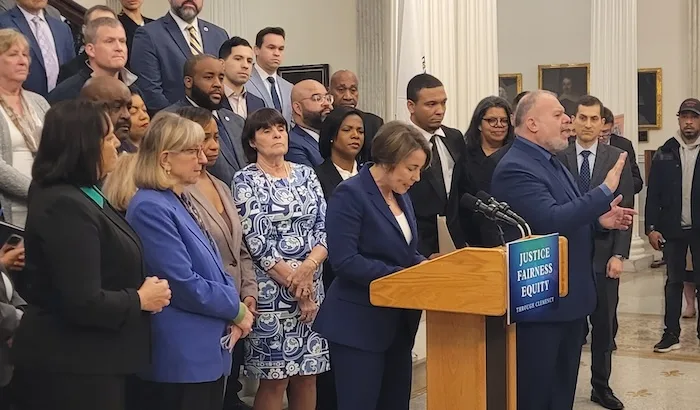
It’s not that Healey and others in leadership positions didn’t recognize past sins while speaking from the podium. The governor specifically noted that “thousands of people [in Mass] are still living with a conviction on their records—a conviction that may be a barrier to jobs, getting housing, even getting an education.” While state Attorney General Andrea Campbell said, “Criminal convictions for simple marijuana possession have serious lifelong consequences, making it nearly impossible to secure housing, attain a job, [or] be afforded educational and other financial opportunities.” The concern is just that these are revelations countless canna advocates, consumers, and defense attorneys have explained for generations.
To Healey’s credit, those truth tellers were invited to Wednesday’s celebration, as the governor’s team asked delegates from all the abovementioned impacted parties to flank her on the Grand Staircase. Still, watching politicians take credit at all was like watching executives in clean hardhats holding golden shovels pose in front of a new skyscraper while the people who actually built the thing are standing in the background or nowhere to be found.
Asked about her switcheroo, Healey said, “Hopefully people want a governor who is willing to evolve.” That’s hard to criticize, especially when, as she explained, affected individuals “will not have to take any action themselves in the vast majority of these cases—we’ll simply work with the court system and through the paperwork to update the records.” (Before that happens, the Massachusetts Governor’s Council has to vote on the sweeping pardon.)
The governor also called up Danny Vasquez and Devin Alexander, two individuals who now work in the Mass grass industry but whose lives were set off course by archaic bigoted drug laws, to tell their stories. The latter even noted that the pardons now in progress don’t go far enough, and called for all past cannabis offenses to be stricken from the record. It was an interesting flourish, and one that wouldn’t have likely happened under past administrations. But in what even a cynic like me saw as a rare magical Massachusetts marijuana moment, Alexander’s comments were applauded by elected officials, some of whom brought comparable condemnation of the courts.
“Black people have carried the enormous burden of a biased criminal legal system for decades,” AG Campbell said. “While these stats are sad and egregious, the commonwealth of course has the ability to do something about it—especially when the possession of marijuana is no longer a crime in our state.”
“For some, it’s more than [the criminal record]—[a marijuana conviction can be] a difficult memory, a burden, something they live with every day,” Healey said. “All for doing something that isn’t even cause for arrest today. That doesn’t sit right with me, it’s not fair, it’s unfinished business. Knowing we have the power to lift that burden, we should do something about it.”
If only the governor or any of her predecessors had asked one of the hundreds of thousands of people whose lives were devastated by a weed charge, they could have heard about such unbelievable injustices years ago, and acted sooner.



